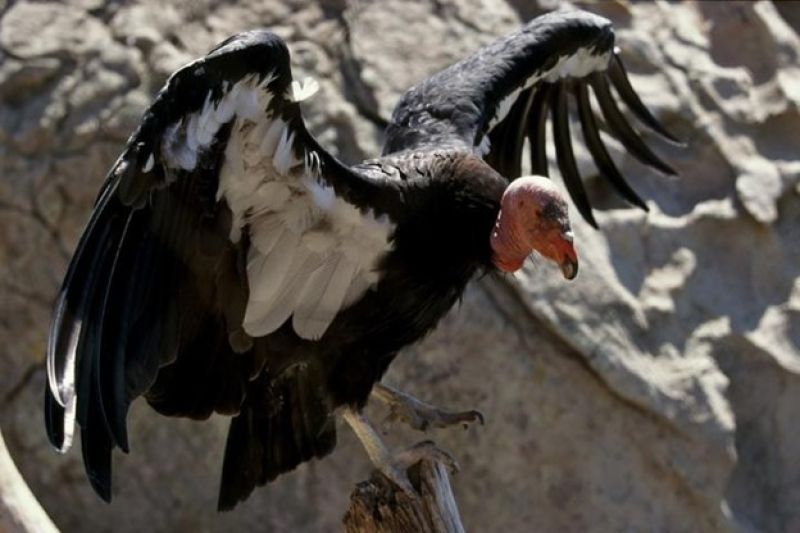New NSF/Paul G. Allen Family Foundation Program Seeks to Advance Research and Applied Conservation Efforts

California condors are one of the most well-known endangered species in North America.
July 11, 2022
Unprecedented changes in climate and biodiversity threaten nature, human life, and society. To address these intertwined challenges, the U.S. National Science Foundation (NSF) and the Paul G. Allen Family Foundation (the foundation) have announced the new Partnership to Advance Conservation Science and Practice (PACSP) program. Designed to generate collaborations between academic researchers and conservation practitioners, PACSP will support transdisciplinary, goal-directed research focused on conservation science. The program will be administered by NSF with awards jointly funded by the two organizations.
Successful proposals will move forward conservation science via insights from organismal biology, ecology, and/or evolution, and contribute to on-the-ground biodiversity conservation efforts. Close collaboration between the partners will be essential to build a project plan that is science-based as well as practical, and an assessment plan that informs the science as well as the conservation efficacy. Proposals are expected to set specific conservation outcomes founded on conservation research and placed in the context of broader societal impacts.
The effort builds on each organization’s history of supporting biodiversity and climate-focused work. NSF has been investing in fundamental understanding of the environmental response to climate change and environmental biology for years through a portfolio of programs. The foundation supports a global portfolio of partners working to preserve ocean health, protect wildlife, combat climate change, and strengthen communities. It invests in grantees to leverage technology, fill data and science gaps, and support public policy to enable lasting change. For this program, NSF will fund the proposed research scope and the foundation will fund the proposed conservation action component of the project.
Full proposals are due by October 11, 2022 . For full details on the program, deadlines, proposal preparation, and a list of cognizant NSF program officers, please visit the PACSP program page on NSF.gov.
The U.S. National Science Foundation propels the nation forward by advancing fundamental research in all fields of science and engineering. NSF supports research and people by providing facilities, instruments and funding to support their ingenuity and sustain the U.S. as a global leader in research and innovation. With a fiscal year 2023 budget of $9.5 billion, NSF funds reach all 50 states through grants to nearly 2,000 colleges, universities and institutions. Each year, NSF receives more than 40,000 competitive proposals and makes about 11,000 new awards. Those awards include support for cooperative research with industry, Arctic and Antarctic research and operations, and U.S. participation in international scientific efforts.
Connect with us online
NSF website: nsf.gov
NSF News: nsf.gov/news
For News Media: nsf.gov/news/newsroom
Statistics: nsf.gov/statistics/
Awards database: nsf.gov/awardsearch/
Follow us on social
Twitter: twitter.com/NSF
Facebook: facebook.com/US.NSF
Instagram: instagram.com/nsfgov


